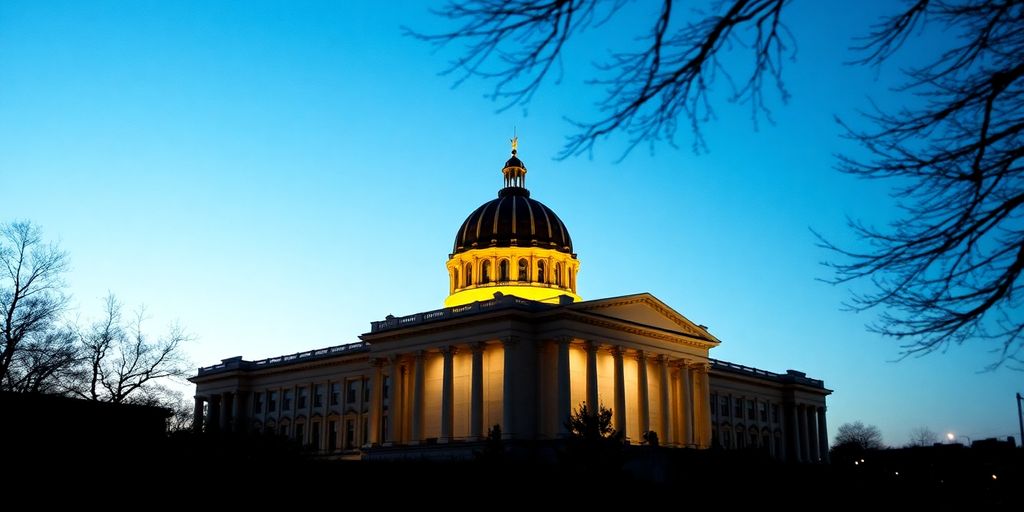Kosovo’s political landscape remains in disarray as its Parliament has repeatedly failed to elect a new speaker, deepening a constitutional crisis. This ongoing stalemate, now spanning months since the February 9 elections, has prevented the formation of a new government and raised questions about the legality of the current acting administration. The inability to secure cross-party support for a speaker highlights profound divisions within the young state.
Prolonged Parliamentary Impasse
Kosovo’s Parliament has been unable to elect a speaker despite numerous attempts, with the latest being the 22nd failed session. This procedural deadlock is critical because, under Kosovo’s constitution, a speaker must be elected before a new government can be formed. The Vetevendosje party, which won the most seats in the February elections, has repeatedly put forward Albulena Haxhiu as their candidate for speaker, but she has consistently failed to secure the required 61 votes.
Key Takeaways
- The failure to elect a speaker has stalled the formation of a new government, leading to a prolonged institutional crisis.
- Vetevendosje’s candidate for speaker, Albulena Haxhiu, has not garnered sufficient cross-party support.
- The Democratic League of Kosovo (LDK) has rejected a coalition offer from Vetevendosje, citing a lack of trust and proposing a transitional government instead.
- Civil society groups and opposition parties have voiced concerns about the legality of the acting government’s decisions during this period.
Political Blame Game and Accusations
Opposition parties largely attribute the current crisis to acting Prime Minister Albin Kurti and his Vetevendosje party. They accuse Kurti of refusing to cooperate and being unwilling to compromise, leading to the prolonged stalemate. Ganimete Musliu, an MP from the Democratic Party of Kosovo (PDK), stated that "Kosovo is hostage to a leader who refuses to cooperate, listen, and change." The LDK, led by Lumir Abdixhiku, explicitly rejected Kurti’s offer for a coalition government, citing a "lack of trust" and proposing a "national transitional government" to run the country until a new president is elected in 2026.
Legality of the Acting Government Questioned
The ongoing parliamentary impasse has led to significant concerns regarding the legality of the current acting government. Civil society organizations and opposition figures argue that the continued operation of Prime Minister Albin Kurti and his cabinet under a technical mandate is unconstitutional. Hikmete Bajrami from the Democratic Alliance of Kosovo stated that 17 criminal charges have been filed against Kurti and his former ministers, alleging violations of Article 26 of the government law. Experts like Bljerina Istrefi from the Group for Legal and Political Studies contend that decisions made by the current executive are illegal under Article 72 of the Constitution, potentially rendering them null and void.
Future Outlook
With no clear path to electing a speaker or forming a new government, Kosovo faces an uncertain political future. If all attempts to form a ruling coalition fail, the country could be forced into snap elections later this year. The prolonged crisis not only hinders domestic governance but also impacts Kosovo’s international standing, including its aspirations for EU integration and ongoing normalization talks with Serbia.
Sources
- Parliament announces the 23rd constitutive session to be held tomorrow, Gazeta Express.
- Kosovo’s LDK Snubs Kurti’s Coalition Government Offer, Balkan Insight.
- Kosovo in political stalemate as parliament fails to elect speaker, Reuters.
- Musliu on Kurti: Kosovo is hostage to a leader who refuses cooperation, Gazeta Express.
- Kosovo’s PM faces questions of legality as civil society laments parliament impasse, Euronews.






